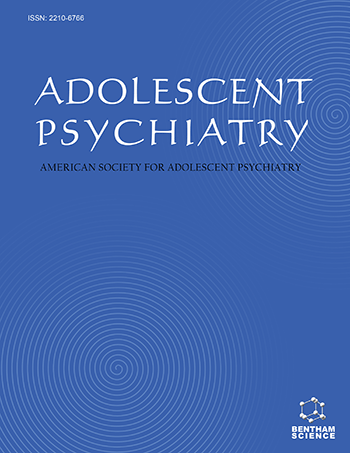Abstract
Until bright, creative, and alienated adolescents learn to make reasonable decisions, they will not engage in proactive, constructive, and creative change. Grounded in principles of reality therapy and choice theory, compassionate confrontation psychotherapy (CCP) stresses the concepts of conscious choice and acceptance of responsibility for ones actions. CCP provides a unique therapeutic experience to induce change. Viewed from this pragmatic and humanistic perspective, the overuse of psychiatric diagnoses and psychopharmacologic treatments inadvertently relieve gifted adolescents from accepting accountability for their choices. Evidence of the success of CCP can be found in the high percentage of alumni of the John Dewey Academy who are admitted to and complete their educations at leading colleges and graduate schools. Further evidence is provided by their academic performances at those institutions of higher learning.
Keywords: Adolescent psychotherapy, confrontation in psychotherapy, gifted adolescents, adolescent behavior disorders, CCP, alienated, Boarding School, Self-Destructive, Compassionate, gifted
Adolescent Psychiatry
Title: Compassionate Confrontation Psychotherapy: Working with Gifted but Self-Destructive Adolescents in a Therapeutic Boarding School
Volume: 1 Issue: 3
Author(s): Thomas Edward Bratter
Affiliation:
Keywords: Adolescent psychotherapy, confrontation in psychotherapy, gifted adolescents, adolescent behavior disorders, CCP, alienated, Boarding School, Self-Destructive, Compassionate, gifted
Abstract: Until bright, creative, and alienated adolescents learn to make reasonable decisions, they will not engage in proactive, constructive, and creative change. Grounded in principles of reality therapy and choice theory, compassionate confrontation psychotherapy (CCP) stresses the concepts of conscious choice and acceptance of responsibility for ones actions. CCP provides a unique therapeutic experience to induce change. Viewed from this pragmatic and humanistic perspective, the overuse of psychiatric diagnoses and psychopharmacologic treatments inadvertently relieve gifted adolescents from accepting accountability for their choices. Evidence of the success of CCP can be found in the high percentage of alumni of the John Dewey Academy who are admitted to and complete their educations at leading colleges and graduate schools. Further evidence is provided by their academic performances at those institutions of higher learning.
Export Options
About this article
Cite this article as:
Edward Bratter Thomas, Compassionate Confrontation Psychotherapy: Working with Gifted but Self-Destructive Adolescents in a Therapeutic Boarding School, Adolescent Psychiatry 2011; 1 (3) . https://dx.doi.org/10.2174/2210676611101030227
| DOI https://dx.doi.org/10.2174/2210676611101030227 |
Print ISSN 2210-6766 |
| Publisher Name Bentham Science Publisher |
Online ISSN 2210-6774 |
 19
19
- Author Guidelines
- Graphical Abstracts
- Fabricating and Stating False Information
- Research Misconduct
- Post Publication Discussions and Corrections
- Publishing Ethics and Rectitude
- Increase Visibility of Your Article
- Archiving Policies
- Peer Review Workflow
- Order Your Article Before Print
- Promote Your Article
- Manuscript Transfer Facility
- Editorial Policies
- Allegations from Whistleblowers
Related Articles
-
Improvement in Cognitive Abilities, Mental and Emotional Wellbeing of Teenagers following a Meditation Retreat: An Open- Trial Pilot Study
Adolescent Psychiatry Adolescence and Borderline Behavior - Between Personality Development and Personality Disorder
Adolescent Psychiatry Screening and Brief Intervention for Adolescent Substance Use in Medical Settings
Adolescent Psychiatry Novel Drugs of Abuse: A Snapshot of an Evolving Marketplace
Adolescent Psychiatry Psychological Distress Among Youth Probationers: Using Social Determinants of Health to Assess Suicidal Thoughts and Behaviors
Adolescent Psychiatry Stigmatising Attitudes Towards Depression and Alcohol Misuse in Young People: Relationships with Help-Seeking Intentions and Behavior
Adolescent Psychiatry Editorial: Looking Beyond DSM 5, Effective Treatments for Traumatic Stress, and Coming to Terms with World War II in the Second and Third Generations
Adolescent Psychiatry “When Can I See You Again?”: The Immigration Experience, Insecure Attachment and Psychotherapy
Adolescent Psychiatry Effects of Self-Image on Identity Status Among Turkish Adolescents
Adolescent Psychiatry Disaster Psychiatry: Good Intentions Seeking Science and Sustainability
Adolescent Psychiatry Does Physician Continuity Within a Clinical Trial Increase Retention and Compliance Among Adolescent Smokers?
Adolescent Psychiatry Stress-related Risk Factors for the Maintenance of Major Depression in Adolescent Girls
Adolescent Psychiatry Adolescent Inpatients with Depression: Comparison to Inpatients without Depression and to Peers without Psychiatric Disorders
Adolescent Psychiatry Promoting Well-being and Resilience in Employing a Relationship Centered Approach: A Case Study of a Pre-adolescent Boy
Adolescent Psychiatry Depression, Stress Symptoms, and Cortisol Awakening Response in Female Adolescents with Chronic Headache
Adolescent Psychiatry Male Adolescent Treatment Outcome: A Case Series of Eight Men Treated with Psychoanalytic Psychotherapy
Adolescent Psychiatry Using Digital and Social Media Metrics to Develop Mental Health Approaches for Youth
Adolescent Psychiatry SYMPOSIA
Adolescent Psychiatry WORKSHOPS
Adolescent Psychiatry Supplements, Diets and Other Complementary and Alternative Interventions in Adolescent Mental Health
Adolescent Psychiatry

























